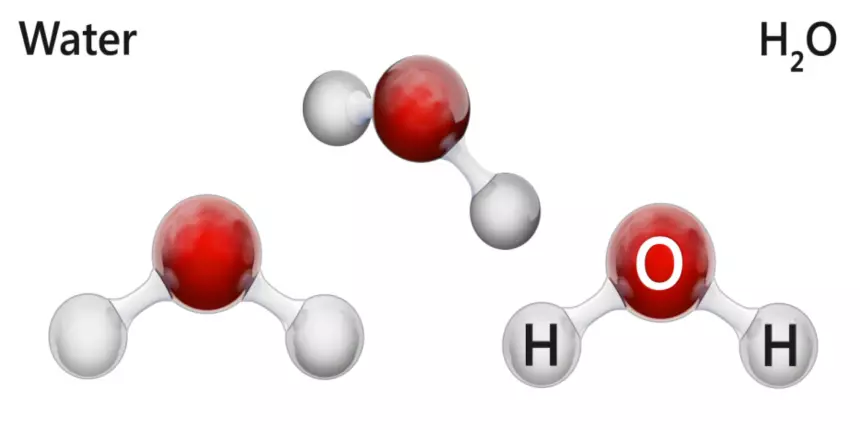H2O Full Form
What is the full form of H20 ?
Water is another name for H2O. Two moles of hydrogen and one mole of oxygen make up H2O. This is a liquid at standard room temperature.
Chemistry of H2O
H2O is the chemical formula for water. Water is a covalently bonded oxygen hydride composed of one oxygen atom and two hydrogen atoms. Water, with the chemical formula H2O, is an inorganic, transparent, flavorless, odorless, and almost colorless liquid that makes up the majority of the Earth's hydrosphere as well as the fluids found in every known living thing. Despite not providing food, energy, or organic micronutrients, it is essential for all known forms of life. Its molecules are made up of two hydrogen atoms joined by covalent bonds and have the chemical formula H2O. The angle at which the hydrogen atoms are joined to the oxygen atom is 104.45°. The liquid condition of H2O at standard pressure and temperature is also referred to as "water."

Seas and oceans account for the majority (approximately 96.5%) of the planet's total water volume, which makes up roughly 71% of its surface. The water cycle—which includes evaporation, transpiration, condensation, precipitation, and runoff—moves water continuously until it typically reaches the sea.
Properties of H2O
Water has no taste, no color. Extensive hydrogen connections between water molecules give them unique features when they are condensed. Due to this, the H2O has high melting and boiling points as well as peculiar properties when condensed. In comparison to other liquids, water has higher specific heat, thermal conductivity, surface tension, dipole moment, and other properties.
Polar water molecules have an overall bent structure, partial positive charges on the hydrogens, and partial negative charges on the oxygen. This is because oxygen draws electrons more powerfully than hydrogen since it is more electronegative than hydrogen. Water is an excellent solvent.
Frequently Asked Question (FAQs)
In nature, chemically pure water (H2O) does not exist (and for that reason, neither in households). Typically, calcium and magnesium salts can be found in water. These substances are referred to as "hardness constituents" because they make the water hard.
A covalent bond is present in water H2O molecules.
Dihydrogen monoxide is what chemists refer to it as, or H2O if they want to impress their peers. However, to the average individual, it's just water.
The measurement of alkalinity and pH is required to ascertain the water's corrosivity. At 25 °C, pure water (H20) has a pH of 7.
Your body benefits from water in the following ways:
Hold the temperature steady. Cushion and lubricate joints. Your spinal cord and other delicate structures need to be protected.
